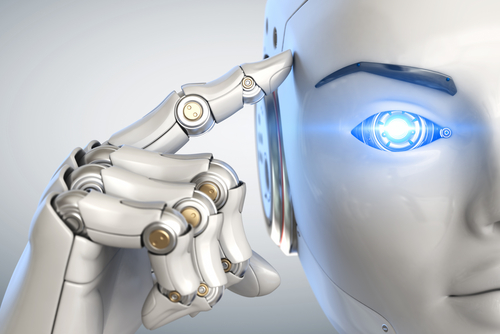When someone is dealing with depression, they might exhibit a few physical symptoms. There can be persistent sadness or a loss of interest in things someone likes to do. These issues are accompanied by sleep, energy levels, and self-esteem changes.
Several other physical symptoms can develop with ongoing depression, ranging from agitation to excessive hunger to complete apathy. There are no specific biomarkers that tests can detect to show that someone is dealing with this issue.
The World Health Organization believes that poor mental health costs $1 trillion in lost productivity annually to the global economy. [[1]]
It can be challenging to diagnose depression, especially when other physical ailments are present. Many mental health disorders can present with several symptoms or mimic others in their presentation.
With the help of artificial intelligence, it might be easier than ever to identify potential mental health concerns in patients.
AI Processes Larger Medical Datasets Faster
Dr. Iva Bojic is one of the key researchers on the project examining whether artificial intelligence could simplify the diagnostic process for patients with depression. [[2]]
“We’ve collected different variables, different signals from variables, something that we call digital biomarkers,” said Dr. Bojic. “Then we correlate this information with the observed symptoms from the patient, allowing the model to learn.
Some of the biomarker information datasets the research team gave to its AI include sleep patterns, energy expenditures, and heart rate. Artificial intelligence's machine-learning capabilities then correlate every patient's metrics to make predictions for new users based on their individual biomarkers.
The focus of this research is on depression, but Dr. Bojic and the research team think it could be extended to detect schizophrenia and other conditions. [[3]]
“This model isn’t binary,” she said. “It provides a percentage from zero to 100. Then it’s basically about where we put the threshold. Are you going to say that depression starts above 50, or are we going to say that it begins around 80%?”
Dr. Bojic believes their work could help become a future screening tool, pointing out that the work was with the general population instead of those already with a clinical depression diagnosis. “I am really happy that we are able to do this kind of digital-health intersection. It's not just chasing some numbers.”
AI Can Also Scan Social Media Posts to Find Datapoints
The Stevens Institute of Technology has also been researching ways for artificial intelligence to discover and potentially diagnose individuals with clinical depression. Their system looks at written text, including social media posts, to find the hallmarks for a depressed mood. [[4]]
Rajarathnam Chandramouli, a professor of computer and electrical engineering at the institute, helped to create the new system. “Depression affects one in 15 adults each year, and 300 million people globally,” he said. [[5]]
Chandramouli worked with graduate student Rida Zainab on the project. She is a Fulbright recipient from Pakistan who spent two years in the institute’s Applied Artificial Intelligence master’s program. [[6]]
“When I started my master’s thesis,” said Zainab, “I did not fully realize the significance of this problem. Now… the need to deal with depression and mental health feels even more serious and urgent.”
Chandramouli called this work the “first step toward making a difference.”
This AI spots linguistic patterns that could indicate an individual is dealing with physical or mental symptoms associated with depression. The goal is to have this technology help predict self-destructive behavior to ensure individuals receive proactive and individualized interventions.
When dealing with clinical depression, people tend to use more words related to sad emotions. They exhibit more intensity with their self-focus while adding thrill-seeking content to their profiles.
Chandramouli and Zainab used the technology on Reddit because of the longer entries and the content’s overall authenticity.
The Stevens AI approach was found to be nearly 90% accurate when detecting depressive affect through a person’s writing. For Chandramouli, that means the algorithm can be a discreet way to assess someone’s mental health without requiring trips to the doctor or unwanted in-person evaluations.
If depression becomes easier to diagnose through AI, more people can receive interventions and treatments that could restore their quality of life. When that result happens, we’ll see higher levels of contentment and happiness in our families and communities.
References:
[[1]] https://www.technology.org/2022/09/03/the-ai-will-see-you-now-diagnosing-mental-disorders-intelligently/ ; [[2]]https://www.facebook.com/unitedwomensingapore/photos/a.222229632497557/222235422496978/?type=3 ;[[3]] https://www.technology.org/2022/09/03/the-ai-will-see-you-now-diagnosing-mental-disorders-intelligently/ ; [[4]] https://www.stevens.edu/news/detecting-depression-using-ai ; [[5]] https://faculty.stevens.edu/rchandr1 ; [[6]]https://us.fulbrightonline.org












